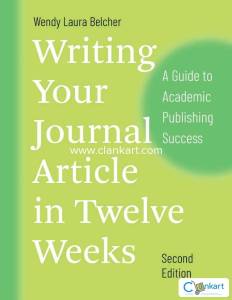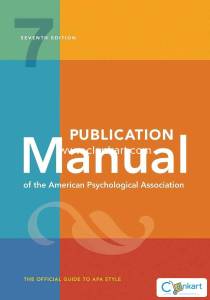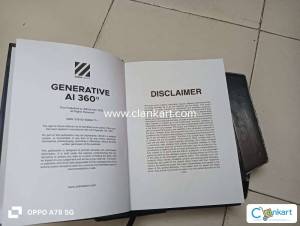Buy used College Books %28Higher Education Textbooks%29 books online in India
Buy Second Hand Books, Used Books Online In India
NCERT Solved Paper 10 years
Oswal Publishers take great pleasure in presenting the "CBSE 10 Last years Solved Papers" for class 12 Humanities students appearing for CBSE Board 2019 Examination. This edition has been structured in a manner that students get a fair idea of the type and style of questions asked in the previous years board examination. The present Volume includes: English, Physical Education, Economics, Political Science, Geography History, Sociology, Psychology. They are prepared by experienced teachers and will prove to be a valuable guide for the students of class XII.
NCERT Examplar class10
NCERT Exemplar Science Problems - Solutions (Class 10) is a comprehensive book for students of standard X studying in schools affiliated to the Central Board of Secondary Education. The book comprises chapters on chemical reactions and equations, acids, bases and salts, metals and non-metals, life processes, human eye and colorful world, electricity and the environment. In addition, the book consists of several solved examples for thorough revision and final practice. This book is essential for students preparing for their board examinations.
Introduction to Algorithms, fourth edition
A comprehensive update of the leading algorithms text, with new material on matchings in bipartite graphs, online algorithms, machine learning, and other topics.Some books on algorithms are rigorous but incomplete; others cover masses of material but lack rigor. Introduction to Algorithms uniquely combines rigor and comprehensiveness. It covers a broad range of algorithms in depth, yet makes their design and analysis accessible to all levels of readers, with self-contained chapters and algorithms in pseudocode. Since the publication of the first edition, Introduction to Algorithms has become the leading algorithms text in universities worldwide as well as the standard reference for professionals. This fourth edition has been updated throughout.New for the fourth edition* New chapters on matchings in bipartite graphs, online algorithms, and machine learning* New material on topics including solving recurrence equations, hash tables, potential functions, and suffix arrays* 140 new exercises and 22 new problems* Reader feedback-informed improvements to old problems* Clearer, more personal, and gender-neutral writing style* Color added to improve visual presentation* Notes, bibliography, and index updated to reflect developments in the field* Website with new supplementary materialWarning: Avoid counterfeit copies of Introduction to Algorithms by buying only from reputable retailers. Counterfeit and pirated copies are incomplete and contain errors.
Street Data: A Next-Generation Model for Equity, Pedagogy, and School
Radically reimagine our ways of being, learning, and doing Education can be transformed if we eradicate our fixation on big data like standardized test scores as the supreme measure of equity and learning. Instead of the focus being on "fixing" and "filling" academic gaps, we must envision and rebuild the system from the student up—with classrooms, schools and systems built around students’ brilliance, cultural wealth, and intellectual potential. Street data reminds us that what is measurable is not the same as what is valuable and that data can be humanizing, liberatory and healing. By breaking down street data fundamentals: what it is, how to gather it, and how it can complement other forms of data to guide a school or district’s equity journey, Safir and Dugan offer an actionable framework for school transformation. Written for educators and policymakers, this book · Offers fresh ideas and innovative tools to apply immediately · Provides an asset-based model to help educators look for what’s right in our students and communities instead of seeking what’s wrong · Explores a different application of data, from its capacity to help us diagnose root causes of inequity, to its potential to transform learning, and its power to reshape adult culture Now is the time to take an antiracist stance, interrogate our assumptions about knowledge, measurement, and what really matters when it comes to educating young people.
Designing and Leading Life Changing Workshops: Creating the Conditions
Become a transformational teacher! If you lead, or aspire to lead, workshops, trainings, or retreats, Designing & Leading Life-Changing Workshops is your blueprint for helping your students and participants learn, change, heal, and grow.Drawing on real-life stories, new science, and ancient wisdom, you'll learn the skills and gain the confidence you need With ready-to-use exercises, templates, worksheets, and checklists, you'll create and fine-tune your workshops, trainings, and retreats. Designing & Leading Life-Changing Workshops will help you get clear about your calling and give you the right tools to empower others. You'll learn how to create the conditions for real creativity, optimal learning, extraordinary outcomes, and fun!
Practical Statistics for Data Scientists, 2e: 50+ Essential Concepts U
Statistical methods are a key part of data science, yet few data scientists have formal statistical training. Courses and books on basic statistics rarely cover the topic from a data science perspective. The second edition of this practical guide--now including examples in Python as well as R--explains how to apply various statistical methods to data science, tells you how to avoid their misuse, and gives you advice on what's important and what's not.Many data scientists use statistical methods but lack a deeper statistical perspective. If you're familiar with the R or Python programming languages, and have had some exposure to statistics but want to learn more, this quick reference bridges the gap in an accessible, readable format.With this updated edition, you'll dive into:Exploratory data analysisData and sampling distributionsStatistical experiments and significance testingRegression and predictionClassificationStatistical machine learningUnsupervised learning
A Guide to the Project Management Body of Knowledge (PMBOK Guide) S
A Guide to the Project Management Body of Knowledge (PMBOK® Guide) is the go-to resource for project management practitioners. Reflecting this evolution, The Standard for Project Management enumerates 12 principles of project management and the PMBOK® Guide – Seventh Edition is structured around eight project performance domains. Both the standard and the guide reflect the wide range of development approaches that lead to value delivery. This edition is designed to address practitioners’ current and future needs and to help them be more proactive, innovative, and nimble in enabling desired project outcomes. This edition of the PMBOK® Guide: reflects the full range of development approaches (predictive, adaptive, hybrid, etc.); provides an entire section devoted to tailoring the development approach and processes; includes an expanded list of models, methods, and artifacts; focuses on not just delivering project outputs but also enabling outcomes; and integrates with PMIstandards+™ for information and standards application content based on project type, development approach, and industry sector.
Designing Data-Intensive Applications: The Big Ideas Behind Reliable,
Data is at the center of many challenges in system design today. Difficult issues need to be figured out, such as scalability, consistency, reliability, efficiency, and maintainability. In addition, we have an overwhelming variety of tools, including relational databases, NoSQL datastores, stream or batch processors, and message brokers. What are the right choices for your application? How do you make sense of all these buzzwords? In this practical and comprehensive guide, author Martin Kleppmann helps you navigate this diverse landscape by examining the pros and cons of various technologies for processing and storing data. Software keeps changing, but the fundamental principles remain the same. With this book, software engineers and architects will learn how to apply those ideas in practice, and how to make full use of data in modern applications.
PUBLICATION MANUAL OF THE AMERICAN PSYCHOLOGICAL ASSOCIATION, 7TH EDIT
The new 2020 copyright release of the Publication Manual of the American Psychological Association, Seventh Edition includes three different formats -- spiral and tabbed, paperback, and hardcover, all of which are full-color. It is the official source for APA Style. With millions of copies sold worldwide in multiple languages, it is the style manual of choice for writers, researchers, editors, students, and educators in the social and behavioral sciences, natural sciences, nursing, communications, education, business, engineering, and other fields. Known for its authoritative, easy-to-use reference and citation system, the Publication Manual also offers guidance on choosing the headings, tables, figures, language, and tone that will result in powerful, concise, and elegant scholarly communication. It guides users through the scholarly writing process--from the ethics of authorship to reporting research through publication. The seventh edition is an indispensable resource for students and professionals to achieve excellence in writing and make an impact with their work. The seventh edition has been thoroughly revised and updated to reflect best practices in scholarly writing and publishing.All formats are in full color, with a new tabbed spiral versionImproved ease of navigation, with many additional numbered sections to help users quickly locate answers to their questionsResources for students on writing and formatting annotated bibliographies, response papers, and other paper types as well as guidelines on citing course materialsDedicated chapter for new users of APA Style covering paper elements and format, including sample papers for both professional authors and student writersNew chapter on journal article reporting standards that includes updates to reporting standards for quantitative research and the first-ever qualitative and mixed methods reporting standards in APA StyleNew chapter on bias-free language guidelines for writing about people with respect and inclusivity in areas including age, disability
























